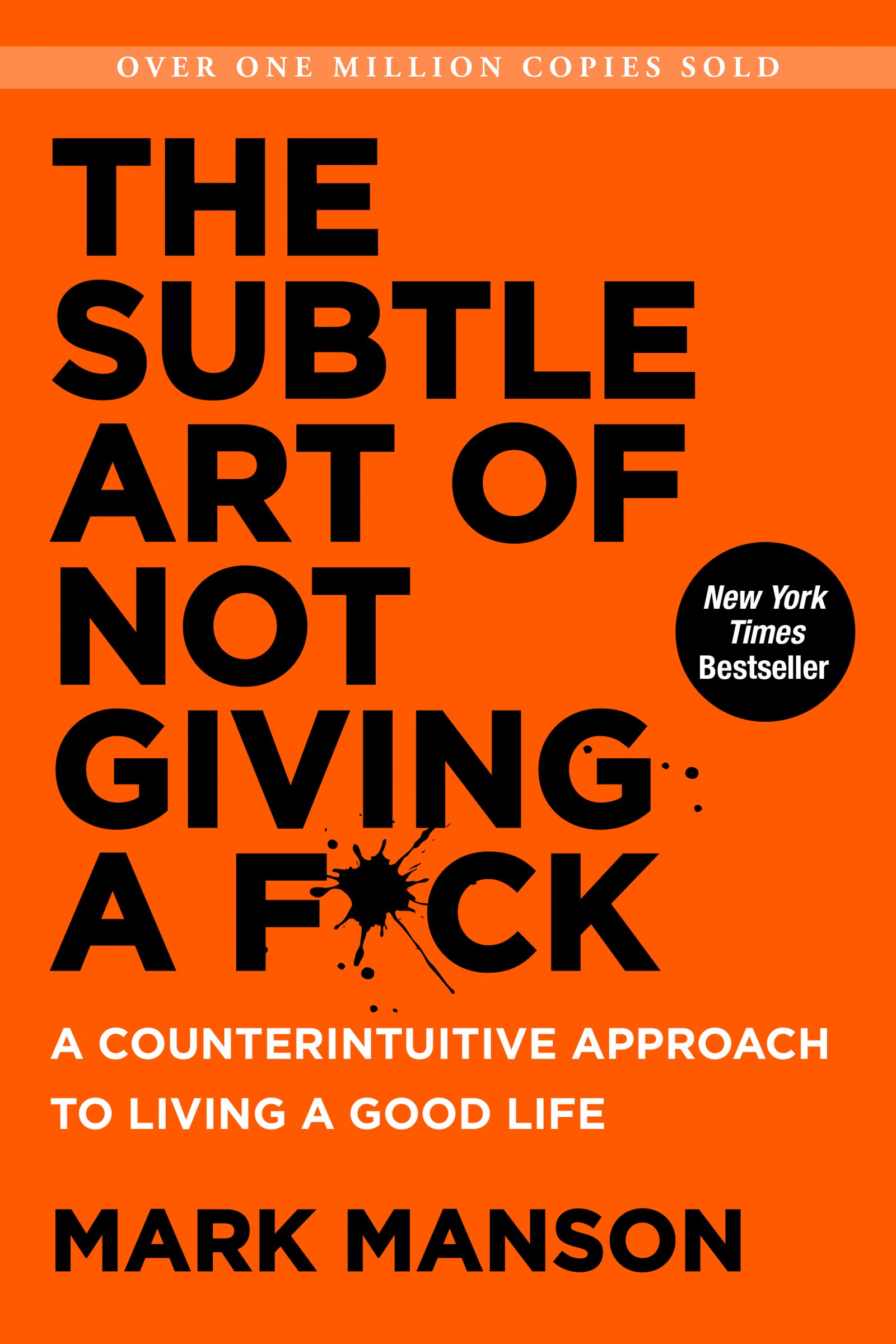
The Subtle Art of Not Giving a Fuck: A Counterintuitive Approach to Living a Good Life
This book was pretty funny, and also gave some awesome practical advice about life. It consolidated a lot of the lessons I learned from life and reading widely, and then some.
The Three Subtleties:
- Not giving a fuck does not mean being indifferent; it means being comfortable with being different.
- To not give a fuck about adversity, you must first give a fuck about something more important than adversity.
- Whether you realise it or not, you are always choosing what to give a fuck about.
On Happiness
- There is suffering in everything, but some types of suffering are more painful than others.
- Happiness comes from solving problems.
- Real, serious lifelong fulfilment and meaning have to be earned through the choosing and managing of our struggles. They key question is: What pain do you want to sustain?
On Not Being Special
- Entitlement is bad. It is associated with a delusional degree of self-confidence, and gives people the need to feel good about themselves all the time.
- Entitlement plays out in two ways:
- I’m awesome and the rest of you all suck, so I deserve special treatment
- I suck and the rest of you are awesome, so I deserve special treatment
- The reality: you and your problems are not privileged in severity or pain
- We are not destined to do something extraordinary
On The Value of Suffering
- Problems in life are unavoidable, so instead of asking “how do I stop suffering?”, ask “why am I suffering - for what purpose?”
- We need to choose the right values and metrics, which assess progress toward those values
- Shitty values create poor problems for people that can hardly be solved:
- Pleasure: Easiest to obtain and easiest to lose
- Material Success: Diminishing marginal returns
- Always Being Right: Cannot take on new perspectives and empathise with others
- Staying Positive: Avoidance to problems
- Defining good values:
- Reflects reality
- Benefits others
- Within your control
You Are Always Choosing
- When we feel that we’re choosing our problems, we feel empowered
- When we feel that our problems are being forced upon against our will, we feel victimised and miserable
- We always control how we interpret what happens to us and how we respond
- You may not be at fault for the problems you’re facing, but you are responsible for responding
You’re Wrong About Everything
- Don’t seek the ultimate “right” answer for ourselves, but seek to chip away to the ways that we’re wrong today so that we can be a little less wrong tomorrow
- Certainty prevents growth, and it’s easier to live in certainty than test your beliefs to find out for sure
- Being wrong opens up the possibility of change
- We don’t actually know what a positive or negative experience is:
- Difficult or stressful moments could be the most formative and motivating
- The best and most gratifying experiences could also be the most distracting and demotivating
- We are architects of our own beliefs: the human is mind is very capable of coming up with and believing in a bunch of bullshit that isn’t real [Example on pushing buttons]
- Our minds are full of inaccuracy: beliefs, memories, certainty about what is right
- The more something threatens our identify, the more we avoid it, despite what potential it holds and opportunities it presents
- Questions to check yourself:
- What if I’m wrong?
- What would it mean if I were wrong?
- Would being wrong create a better or a worse problem than my current problem, for both myself and others?
Failure is the Way Forward
- Metrics define success and failure
- Improvement is based on thousands of tiny failures (I disagree though, it’s about learning fast, and while failure is the best way to learn, I see it as an inevitability more than a necessity)
- Fear and anxiety and sadness are representative of the necessary pain of psychological growth
- “If you’re stuck on a problem, don’t just sit there and think about it - just start working on it. Even if you don’t know what you’re doing, the simple act of working on it will eventually cause the right ideas to show up in your head.”
- Action isn’t just the effect of motivation; it’s also the cause of it. The cycle is Action –> Emotional Inspiration –> Motivation –> Action –> …
The Importance of Saying No
- The only way to achieve meaning and a sense of importance in one’s life is through a narrowing of freedom: a choice of commitment to one place/belief/person, and a rejection of alternatives
- To value something, we need to care about it, which means rejecting what’s not that thing
- In relationships:
- Be responsible for and solve your own problems, with the choice to support and be supported
- Be willing and able to both say no and hear no
- When trust is destroyed: (1) admit the true values that caused the breach and own up to them, and (2) build up a solid track record of improved behaviour over time
- Commitment gives freedom because:
- There will be fewer distractions
- It hones your attention and focus
- It makes decision making easier
On Embracing Death
- Embracing the fact that you will die one day helps to put in perspective what values are important
- The root of all happiness involves caring about something greater than yourself
- Ask yourself: What is your legacy?